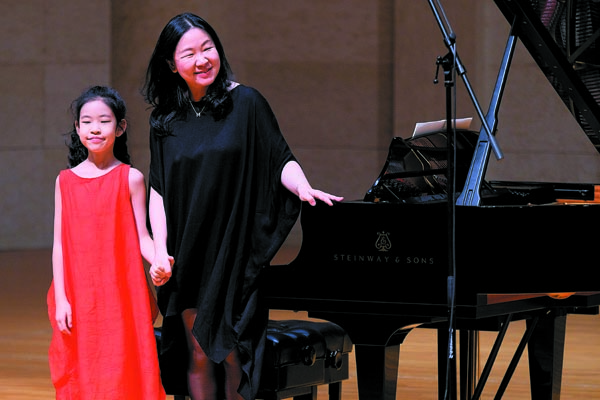Chinese arts take center stage at summer festival
By CHEN NAN | CHINA DAILY | Updated: 2021-06-30 09:38

Having established itself as one of Beijing's biggest arts festivals for children during the summer vacation since 1995, the annual Gateway to Arts 2021 Summer Festival will take place at the Forbidden City Concert Hall starting from Sunday, and will run through Aug 31.
With 10 mini summer camps teaching children Western classical music, traditional Chinese operas and traditional Chinese musical instruments, as well as 69 live performances and 10 public lectures, the festival will run for 59 days during the summer vacation.
On Sunday, Chinese conductor Tan Lihua will lead the Beijing Symphony Orchestra to open the festival with a concert at the Forbidden City Concert Hall, with both Western and Chinese classic music pieces, including The Blue Danube, by Austrian composer Johann Strauss II, Gold and Silver Waltz by Hungarian composer Franz Lehar, and I Love You, China, a song released in 1979 and written by composer Zheng Qiufeng and lyricist Qu Cong.
Tan has performed during the Gateway to Arts Summer Festival since it was launched and he has witnessed the evolution of the festival, which he describes as exciting.
Formerly known as Gateway to Music, the festival was the idea of notable Chinese musicians, including Li Delun (1917-2001), Yang Hongnian (1934-2020), both of whom were conductors and music educators, and violinist Sheng Zhongguo (1941-2018).
"The goal was clear and simple then. That was to offer children a music festival which enabled them to get to know and enjoy classical music during their summer vacation," recalls Tan, 66. "Back in 1995, classical music was considered as a bit of a niche art form (in China), appreciated by only a small audience. We performed some of the most well-known classical music pieces, especially music pieces adapted from popular movies, hoping to appeal to children, who may have not been familiar with classical music."
"We are happy to see that, over the past two decades, classical music has gained a large fan base in China, not only among the adults but also children, many of whom are learning musical instruments now," says Tan. "The festival offers them an opportunity to develop an interest in the art form, which can be fun."
He says the festival has become an inseparable part of his career.
"When I look back, it's a great experience to be part of the festival, which is long-lasting and successful," he says. "Children are curious and eager to learn. We want to offer them a great experience of enjoying music. They don't necessarily need to become professional musicians. It's good enough for them to just have music as a part of their lives."
























